In today's fast-paced fashion landscape, keeping up with the latest trends can be a daunting task. Thankfully, there are several standout brands dedicated to ensuring you stay stylish and chic throughout every season. From high street giants to luxury labels, these brands offer diverse collections that cater to every fashion-forward individual's needs. Curious to explore which brands made the cut for the trendiest clothes? Discover the comprehensive list below.
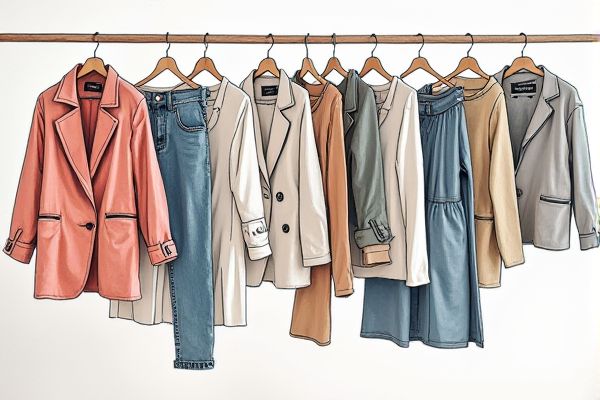
Illustration of trendy clothes
Best brands of trendy clothes in 2025
Zara
Zara has established itself as a leading producer of trendy clothes, driven by its robust data analytics strategies and agile supply chain. The brand achieved an 11.4% growth in global sales in the nine months to October 2023, and it now holds a 2.8% market share in Europe, slightly ahead of H&M. Zara's customers visit its stores an average of 17 times a year, and the brand sells 85% of its items at full price, significantly higher than the industry average. Its vertical integration and just-in-time manufacturing allow for rapid response to fashion trends, with only 10% of its inventory remaining unsold annually. As of 2023, Zara's online net sales reached $54.8 billion, overcoming the pandemic peak of 2021. For more details about Zara's fashion innovations and trends, visit their official website.
H&M
H&M, as one of the leading fast fashion retailers, has been a cornerstone in the industry, known for providing trendy and affordable clothing. Despite facing stiff competition, particularly from Shein and Zara, H&M has maintained its position as the world's second-largest publicly traded fashion retailer. The company experienced a 4% drop in sales in the last quarter but is focusing on increasing its profit margin by showcasing pricier pieces and reducing discounts, aiming for a 10% operating margin by 2024. H&M sells approximately three billion garments annually and has made efforts to improve sustainability, with 65% of its materials being recycled, organic, or sustainably sourced. The brand operates over 4,369 stores worldwide and is present in over 70 physical and 60 online markets.
ASOS
ASOS is a leading online fashion retailer known for its trendy and diverse clothing offerings, catering to a global audience with over 80,000 branded and own-brand products. In 2022, ASOS reported 99.7 million annual orders and boasted 26.4 million active users, with 40% of them based in the UK. The company has seen significant growth, with sales in the UK reaching £1.5 billion in 2023, although it experienced a 9.9% revenue decline to £3.54 billion in the same year. ASOS's marketing strategies, including its ASOS Brand Magazine and influencer partnerships, have been instrumental in its success. Despite a recent operating loss of £248 million in 2023, ASOS remains a prominent player in the online fashion market.
Urban Outfitters
Urban Outfitters is a leading retailer known for its trendy and fashionable clothing, with apparel making up 63% of its global net sales as of fiscal year 2023. The company has seen significant growth, with record sales of $1.13 billion in the third quarter of 2021, marking a 14.6% increase from the previous year. In 2024, Urban Outfitters' global net sales from retail operations reached approximately $4.7 billion. The brand's success is also reflected in its diverse product categories, including home furnishings, accessories, and beauty products. Urban Outfitters continues to be a favorite among young consumers for its stylish and contemporary offerings. For more statistical insights, you can explore the net sales of Urban Outfitters worldwide by segment.
Mango
Mango, one of Europe's leading fashion groups, achieved a historic turnover of over 3.1 billion euros in 2023, marking a 15% increase and a 20% rise at a constant exchange rate. The company expanded its physical presence with over 130 net store openings, reaching nearly 2,700 stores in more than 115 markets worldwide. International business accounted for 77% of the total turnover, with top-performing regions including Spain, France, Germany, Turkey, and the US. The online channel also saw significant growth, exceeding 1 billion euros in turnover for the first time, which accounts for 33% of the group's total turnover. Mango's strategic plan aims to surpass 4 billion euros in turnover by 2026. For more detailed information, you can visit their official webpage.
Uniqlo
Uniqlo has emerged as a leading global fast fashion retailer, known for its high-quality, affordable, and technologically advanced clothing. With over 2,250 stores in 25 countries as of 2019, Uniqlo has captured a significant market share, particularly in Asia, where it is the largest apparel chain. The brand's innovative fabrics such as HeatTech, AIRism, and LifeWear have differentiated it from competitors, contributing to its strong growth and a brand value of USD 9.2 billion. Uniqlo's efficient supply chain and customer-centric approach have enabled it to achieve record revenues, including ¥3.1 trillion ($20.8 billion) in the fiscal year ending August 2024. The brand's global expansion, especially in North America and Europe, has further solidified its position as a major player in the fashion industry. For deeper insights into Uniqlo's strategic approach, visit Uniqlo: The Strategy Behind the Global Japanese Fast Fashion Retail Brand.
Topshop
Topshop, once a stalwart of Britain's high street, has been a leading producer of trendy and affordable clothing since its inception in 1964. The brand, known for its fashion-forward approach, has historically appealed to a wide range of customers, particularly young women aged 16-30. Despite a decline in its market share from 0.23% in 2021 to 0.19% in 2023, Topshop remains a cultural icon and a testament to innovation and inclusivity in the retail landscape. Its product portfolio extends beyond clothing to include beauty products, nightwear, and sustainable collections. However, its brand health and customer engagement have faced significant challenges since its transition to an online-only presence. For more insights, read the full article about Topshop's strategic transition.
Free People
Free People is a renowned US brand celebrated for its unique bohemian aesthetic, catering to the modern, free-spirited young woman. Established in the 1970s, the brand is known for its feminine, courageous, and spirited clothing, with a strong focus on quality and affordability. In Winter 2021, trends such as oversized sweatshirts, which were expected to rise in visibility by 24%, and the reliable gypsy maxi dress, were key highlights of their collections. The brand's website, accessible through Free People's official site, attracts a significant audience, with 16 million total visits and a 26.69% increase in web traffic compared to the previous month. Free People's target audience is predominantly female, with 83.56% of visitors falling into this demographic.
Revolve
Revolve is a leading next-generation fashion retailer, catering to Millennial and Generation Z consumers with a vast and curated offering of over 100,000 apparel and footwear styles, as well as beauty, accessories, and home products. With more than 20 years of investment in technology, data analytics, and innovative marketing, Revolve connects a deeply engaged community of millions of consumers and thousands of global fashion influencers. The company launches over 1,500 new styles per week and has built a powerful platform that redefines fashion retail for the 21st century. As of Q3 2024, Revolve holds a market share of 1.84% in the retail sector and has seen significant growth, with its market cap increasing by 171.49% in one year to $2.61 billion.
Boohoo
Boohoo has established itself as a leading producer of trendy clothes, founded in 2006 in Manchester by Mahmud Kamani and Carol Kane. The brand has seen significant growth, with a customer base of 20 million globally and sales exceeding PS1.9 billion. Boohoo's success is attributed to its strong online presence, with 7.4 million Instagram followers, and its strategy of acquiring other brands such as Debenhams, Burton, Dorothy Perkins, and Wallis. The brand's focus on inclusivity, offering sizes up to 26, and its weekly fashion drops have made it a favorite among young, value-oriented customers. As of 2021, Boohoo's revenue reached PS1.23 billion, a 44% increase from 2019.










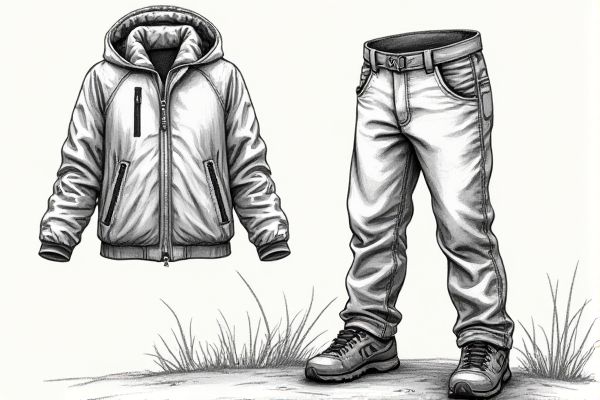

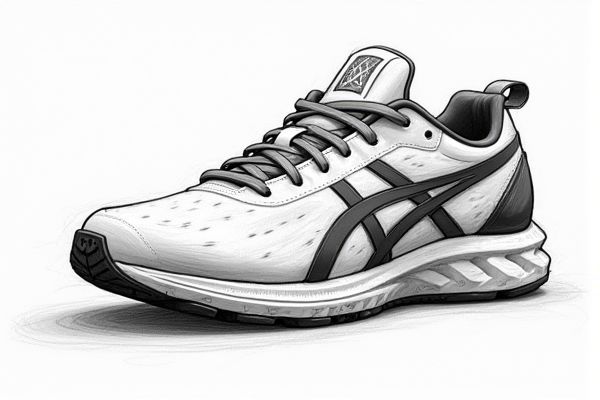
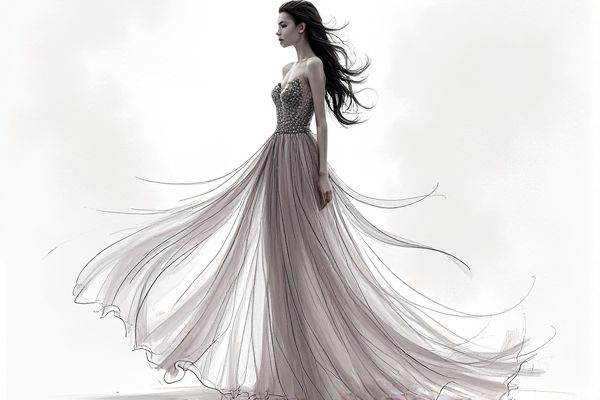

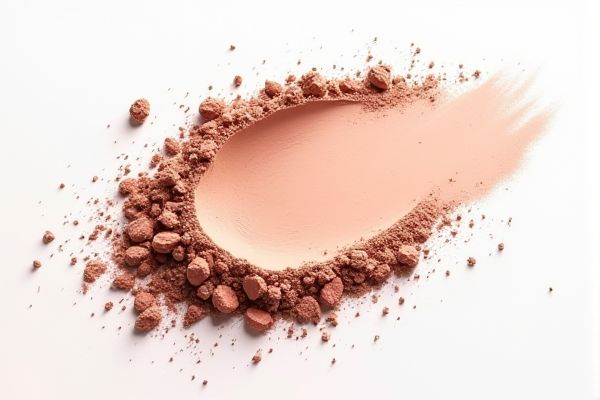
Leave a Reply
Your email address will not be published.